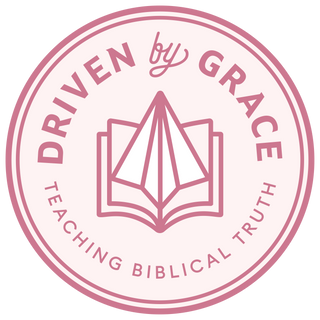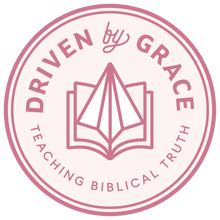Our Kindergarten Curriculum Choices (2021-2022)

We recently finished our official (second) year of kindergarten. I say the second year because last year was technically transitional kindergarten since my son misses the kinder age cut off by twenty-some days. So, in our state, he was officially kindergarten this year. Since I taught him kinder last year, some of our curriculum choices are a grade level ahead, like math.
One of the new things we tried this year was joining a charter. I was very hesitant to join a charter, but I heard great things from many of my friends who are with one, so I decided to give it a try. I didn't want to lose control of my homeschool; I just wanted the ability to have extra funds and resources for school supplies and books.
I've had a great experience, but I believe it all depends on the charter you are with and the teacher you receive. I was accepted to two different charters, and after interviewing with one, I knew it wouldn't be a good fit, so I declined the acceptance. Thankfully, we got accepted to another charter, and our teacher is awesome! She's so supportive, hands-off, and encouraging. So, for now, we are sticking with it and taking it year by year.
So, let's dive into what curriculum we did for the 2021-2022 school year.
Classical Conversations:
Our family just finished our second year with Classical Conversations (CC). I felt more confident this year to make Classical Conversations our core curriculum. The previous year I added in a bunch of other things, and I decided that less is more this year. CC covers history, geography, and science, so that is why you won't see additional history or science in my curriculum picks.
We covered a ton in the 24 weeks with the program, so adding more was just too much. If there are specific things I need to hit for our charter requirements, I add those lessons in as needed.
Math: Saxon Level 1
I switched to Saxon math this year after reading "The Core." It's written by the creator of Classical Conversations. She recommended Saxon math due to its repetition and focus on mastery of concepts. We were using Master Books before, and while my son loved it, it didn't provide the mastery I wanted him to have. I've enjoyed Saxon this year, and we will be doing level 2 next year. I'm very happy with the concepts and skills my son learned this past year using this math program.
Reading: All About Reading
I started All About Reading (AAR) for our second semester in January. I can't say enough good things about this reading program. It was exactly what we needed when we had to make a switch mid-year.
The first semester we were using Good and the Beautiful (TGATB) LA, and it was just going way too fast. A lot of families love TGATB, but unfortunately, it didn't work for us. Thankfully we have the flexibility to pause and pivot. Lots of friends recommended AAR, and so glad they did! My son enjoys reading now and is improving so much through this program. The program isn't based on grade level; it's based on skill level. The level 1 that we started with was great for a kid that knows all their sounds and some blending sounds.
Writing: Learning Without Tears
To work on penmanship, we started using Learning Without Tears handwriting. I like the brief lessons that help with penmanship and writing basic sentences. I use the blank narration journal for history and science. After we do a science or history lesson, my son draws a picture of what we learned and then writes a sentence or two.
Science:
I use Classical Conversations as our core. This last year we learned about oceans, weather, animal kingdoms, plants, layers of the earth, and more. We cover so much material that I don't feel we need to add anything. If there is a specific science standard we did not hit, we will add that in as needed throughout the year, usually through a picture book from the library or shows like Magic School Bus and Wild Kratts.
History:
Again, I use Classical Conversations as our core. This last year we learned about the ancient civilizations like Mesopotamia, Egypt, Greece, Rome, China, and more. We focused on learning the history songs and added a picture book from the library. That's about it at this level.
I also love Story of the World. We used it as our read-aloud for some weeks, and it's great! I recommend getting the activity book with it.

Extra Stuff:
Since Classical Conversations is only 24 weeks and a school year is supposed to be 36 weeks, we have some extra time to add things that interest us. Here are something things we enjoyed doing:
Gather Round Dinosaur Study:
My son loves dinosaurs and wants to be a paleontologist. So to help expand on his interests, I turned our Fridays into fun Fridays. We did one lesson from our dinosaur unit every Friday. It was his favorite day of the week. Great study! We will be doing more studies in the future.
Animals in Time:
Animals in Time (AIT) is a cute storybook to add to your weekly memory work with Classical Conversations. I especially love the PDF activity book that pairs with it. Our community day is on a Thursday, so I introduce our memory work on Monday. By Thursday, it's just a review for my kids. It worked well this year. On Mondays, I used AIT as a way to introduce the new week's memory work. It's created by a fellow CC mom, Hosanna. Definitely check it out for CC families with younger kids.
Bible Studies:
Last but not least are my Driven By Grace Bible studies. We use the Bible studies I create each morning over breakfast. We always do the Christmas study in December and Easter from March to April. This last year we also did Exodus. Once we finished those studies, we started doing my Bible verse memory journals to focus on memorizing a verse a week from each book of the Bible.
Some of the links in this post are Amazon affiliate links. If you purchase through them, I'll receive a small commission without additional cost to you. I appreciate your support!








